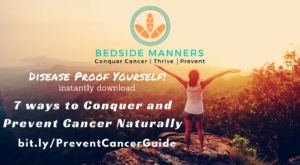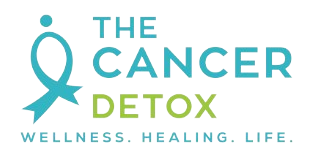Forget cancer awareness, focus on this instead
What exactly does “cancer awareness” mean? After years of being conditioned into thinking that it has to do with finding a cure for cancer, we can now say the exact opposite to be true. Based on recent statistics, 14 million new cases of cancer were diagnosed in 2012 resulting in 8.2 million cancer-related deaths (National Cancer Institute (NCI); available at: www.cancer.gov/about-cancer/what-is-cancer/statistics. Accessed February 23, 2016). Despite the millions of dollars raised during various cancer awareness months, it seems that this does not translate into cancer prevention. And with February being cancer prevention month, it’s a good idea to highlight ways the public can prevent certain cancers.
We all know someone who’s been affected by cancer. And for those with a family history, there may be a heightened fear of getting a cancer diagnosis. However, very few cancers are due inheritance. In fact, less than 25% of cancers are inherited, the rest are caused by environmental (aka – lifestyle) factors (e.g. obesity, lack of exercise and sunlight).
Vitamin D and Cancer
One environmental factor proving to be of utmost importance is exposure to vitamin D. You get vitamin D by being in sunlight and ingesting certain foods (e.g. fish). In the scientific community, the idea of Vitamin D in preventing cancer has been around for 30 plus years, after a study showed that those from higher latitudes, who get less sunlight exposure and have lower vitamin D levels, had a higher incidence of cancer (https://www.sciencedaily.com/releases/2016/04/160406165254.htm).
Vitamin D supplementation is currently recommended at 400 IU by the Institute of Medicine. However, based on the studies discussed below, this may be totally inadequate for certain populations. Based on the data, it would be prudent for one to get their vitamin D blood levels measured to determine their status and work with your healthcare provider on the supplements you may need for better health.
Low Vitamin D Levels, Higher Risk of Cancer
Women it’s a must you get your vitamin D levels above 40. Yup, that’s 40 nanograms per milliliter of blood (abbreviated ng/mL) and this levels means you have sufficient vitamin D in your blood. Women with Vitamin D levels of 40 and higher have a 70% lower rate of cancer (all types) compared to women considered vitamin D deficient. You’re deficient in vitamin D when your levels are less than 20.
At the end of the article the researchers were emphatic that vitamin D is a key prevention tool in helping curb the high incidence of cancer globally:
“Primary prevention of cancer, rather than solely expanding early detection or improving treatment, will be essential for reversing the current upward trend of cancer incidence worldwide; this analysis suggests that improving vitamin D status is a key prevention tool.”
[McDonnell SL, et al. Serum 25-hydroxyvitamin D concentrations ≥40 ng/mL are associated with >65% lower cancer risk: pooled analysis of randomized trial and prospective cohort study. PLOS One. 2016;epub]Breast Cancer and Vitamin D Levels
Ladies, the good news doesn’t end there. If you can get your vitamin D levels to 60 or higher you can reduce your risk of breast cancer by 83%. Women newly diagnosed with breast cancer had their vitamin D levels checked and their levels were compared to women who did not have breast cancer. [McDonnell SL, et al. Serum 25-Hydroxyvitamin D Concentrations ≥40 ng/ml Are Associated with >65% Lower Cancer Risk: Pooled Analysis of Randomized Trial and Prospective Cohort Study. PLOS ONE, 2016; 11 (4): e0152441]
And to add more credence to the benefits of vitamin D in cancer prevention, women who had levels of vitamin D higher than 30 had a 63% lower risk of getting breast cancer compared to women who had levels of less than 20.0 [Yao S, et al. Pretreatment serum concentrations of 25-hydroxyvitamin D and breast cancer prognostic characteristics: a case-control and a case-series study. PLoS One. 2011 Feb 28;6(2):e17251]
Race, Vitamin D, and Breast Cancer Risk
A recent study highlighted how pervasive vitamin D deficiency is in African American and Latino women. Of the African American women in the study, 69.2% were found to have levels less than 20, and it was 37.8% for Latino women. Based on the previous studies you can guess that the incidence of breast cancer would be higher in African American women, and yes, that was found to be true. African American women had a predicted increase of breast cancer of 52% and 31% for Latino Women. [Wu Y, et al. Association of vitamin D3 level with breast cancer risk and prognosis in African-amirican and Hispanic women. Cancers(Basel). 2017;9:piiE144]
Breast Cancer Patients, Vitamin D, and Recurrence
In the same study, African American and Latino women diagnosed with breast cancer had a 2.3-fold higher risk of cancer relapse or metastasis if their vitamin D levels were less than 23 ng/mL.
How Does Vitamin D Prevent Cancer?
Well, the exact pathway on how vitamin D prevents cancer is not known. There are lots of theories out there, but three main prevention pathways are common:
1) Vitamin D stops the uncontrollable growth of cancer cells: Vitamin D appears to block the action of proteins p21 and p27, whose job it is to promote cancer cells to grow unchecked.
2) Vitamin D causes cancer cells to die: This is also known as “apoptosis.” Vitamin D seems to promote a protein called BAX, which is involved in killing cancer cells.
3) Vitamin D suppresses cancer from the start: There is a well-studied protein called p53, which is a known tumor suppressor. Vitamin D has been shown to “talk to” or communicate with p53, although exactly how is not known
Get Good Bedside Manners with These Action Steps
#1) Get your vitamin D blood levels checked at your next doctor’s visit
#2) Be ready for your next doctor’s visit by contacting one of our Cancer Patient Advocates. Sign up for a complimentary call to discuss the optimal sunlight exposures and vitamin D levels based on your ethnicity (something your healthcare provider may not know). So when you go back to review your results you can have an educated discussion on how to obtain optimal vitamin D levels.
#3) Get an overall health checkup. It’s been found that vitamin D deficiency is related to obesity, high blood pressure, lower levels of “good” cholesterol (HDL) and overall poor health status. Get annual health check up’s, make the right lifestyle changes if blood pressure, cholesterol or obesity are an issue for you
#4) Get outdoors and get some sun. Use of sunscreen is a personal issue, however, it is a known fact that indigenous cultures who are outside most of the day have lower incidences of cancer.
#5) Download more health tips on how to conquer and prevent cancer naturally here
7 Ways to Naturally Conquer and Prevent Cancer

To your best health!
Dr. Dee Grace, PhD Scientist │Cancer Patient Advocate 770-229-7129 info@drbedsidemanners.com
Conquer Cancer │Thrive│Prevent. Bedside Manners provides health advocacy and education to cancer patients so they get good bedside manners and better healthcare. We focus on 3 things: 1) educating patients on science-backed natural ways to improve their quality of life during their cancer journey; 2) empowering patients and survivors with a detailed “survivorship game-plan” based on sound scientific principles of wellness and stress-reduction; and 3) ensuring patients receive quality healthcare that improves their chances of survival.


